Virginia Department of Education
Charles’ Law
Searching for a relatively interesting way to demonstrate Charles' Law? Here is a instructional activity in which pupils heat air inside a flask and then cool the flask to quickly cool the air. They make observations about what occurs...
Virginia Department of Education
Laboratory Safety and Skills
Avoiding lab safety rules will not give you super powers. The lesson opens with a demonstration of not following safety rules. Then, young chemists practice their lab safety while finding the mass of each item in a mixture and trying to...
Virginia Department of Education
Vapor Pressure and Colligative Properties
Hate to vacuum, but enjoy using a vacuum pump? Explore a lesson plan that starts with a demonstration of boiling water at various temperatures by using a vacuum pump. Then scholars design their own experiments to measure vapor pressure...
Virginia Department of Education
States of Matter
Scientists have been studying exothermic reactions before they were cool. The lesson begins with a discussion and a demonstration of heat curves. Scholars then determine the heat of fusion of ice and the heat needed to boil water through...
Virginia Department of Education
Molar Volume of a Gas
What is a chemist's favorite plant? Stoichiome Tree! Scholars produce hydrogen gas by reacting magnesium with hydrochloric acid. Then they calculate the molar volume of the gas produced before answering assessment questions.
Virginia Department of Education
Solution Concentrations
What happens when you combine 6.022 times 10 to the 23 piles of dirt into one? You make a mountain out of a mole hill. Scholars use dehydration to obtain percent composition and then calculate the molarity of the original solution.
Virginia Department of Education
Thermochemistry: Heat and Chemical Changes
What makes particles attract? Here, learners engage in multiple activities that fully describe colligative properties and allow the ability to critically assess the importance of these properties in daily life. Young chemists conduct...
Virginia Department of Education
Partial Pressure
At some point, everyone has been under pressure—even Dalton! Explore Dalton's law of partial pressures with young chemists as they measure the volume of air extracted from a sample compared to its original volume. Class members perform...
Virginia Department of Education
Average Atomic Masses
Facilitate learning by using small objects to teach the principles of atomic mass in your science class. Pupils determine the average mass of varying beans as they perform a series of competitive experiments. They gather data and...
Virginia Department of Education
Heat Transfer and Heat Capacity
It's time to increase the heat! Young chemists demonstrate heat transfer and heat capacity in an activity-packed lab, showing the transitions between solid, liquid, and gaseous phases of materials. Individuals plot data as the changes...
Curated OER
Significant Digits
In this significant digits worksheet, students are given the rules for determining the number of significant digits in calculations and measurements and they solve 5 problems.
Teach Engineering
Measuring Surface Tension
How do you measure surface tension? The fifth installment of a nine-part series is an experiment where young scientists use tubes of different sizes to measure surface tension. They calculate the average and standard deviation of the...
Curated OER
Moles, Moles, Moles
Students investigate moles and measure out a mole by mass and volume. In this mole lesson plan, students observe demonstrations of quantities of substances that measure 1 mole. Students use a solid aluminum block and ruler to measure the...
Curated OER
Molar Mass
Students apply the ideal gas law and Dalton's Law of Partial Pressure to develop an experiment which determine the molar mass of butane from disposable lighters. In small groups, they develop a procedure and have it approved before...
Curated OER
Review of Significant Digits
In this significant digits worksheet, learners review the rules for performing calculations with significant digits. Students then express answers with the correct number of significant digits. This worksheet has 3 short answers and 1...
Curated OER
How Large is a Mole of M&M's
Students calculate whether or not a mole of M&M's fill their high school. They practice factor-labeling, define a mole, and calculate the number of cubic feet per mole of M&M's. To answer the question they measure and calculate...
Curated OER
Evaluating Secondary Physical Constants
In this physical constants learning exercise, learners use fundamental physical constants of nature to determine "secondary" constants. This learning exercise has 7 problems to solve.
Curated OER
The Importance of Water
Students explore the importance of water. They discuss why water is important and students design an experiment that evaluates the water quality and methods of improving water quality. Students perform testing and report their findings.
Chiral Publishing
Chiral Publishing: An Introduction to Chemistry: Scientific Notation [Pdf]
Learn step by step instructions on how to express numbers in scientific notation. Discover the rules to scientific notation and view several examples of numbers being expressed in scientific notation.
Chem Tutor
Chem Tutor: Chemistry: Scientific Notation
The learning resource investigates scientific notation. It provides a table with numbers written numerically, in words, and in scientific notation.
CK-12 Foundation
Ck 12: Algebra: Scientific Notation
[Free Registration/Login may be required to access all resource tools.] Scientific notation, why it is used, and converting numbers to and from scientific notation.
Khan Academy
Khan Academy: Preparing to Study Chemistry
This resource provides a summary of some fundamental math and science concepts that will be helpful in learning chemistry. Links are provided to help you learn or review the material on Khan Academy.
CK-12 Foundation
Ck 12: Plix: Scientific Notation in Chemistry
[Free Registration/Login Required] In this interactive you will move the ruler to measure the distance between two points. You will need to sign-in to access this media, but it will be well worth your time!
Frostburg State University
General Chemistry Online: Rules for Significant Digits
This site from General Chemistry Online provides a mnemonic device you may not have seen to help remember the rules for significant digits called the Atlantic-Pacific Method. Also includes a comparison between this rule and the...




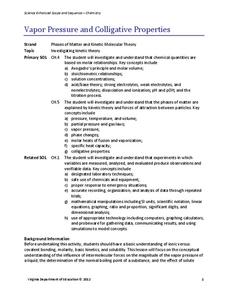









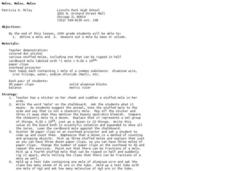
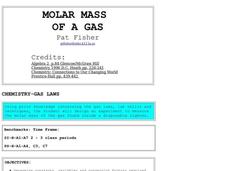
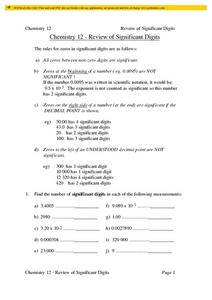


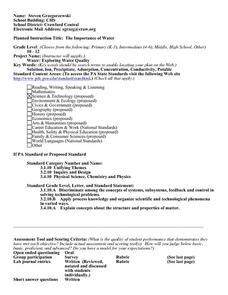
![Chiral Publishing: An Introduction to Chemistry: Scientific Notation [Pdf] eBook Chiral Publishing: An Introduction to Chemistry: Scientific Notation [Pdf] eBook](https://d15y2dacu3jp90.cloudfront.net/images/attachment_defaults/resource/large/FPO-knovation.png)



